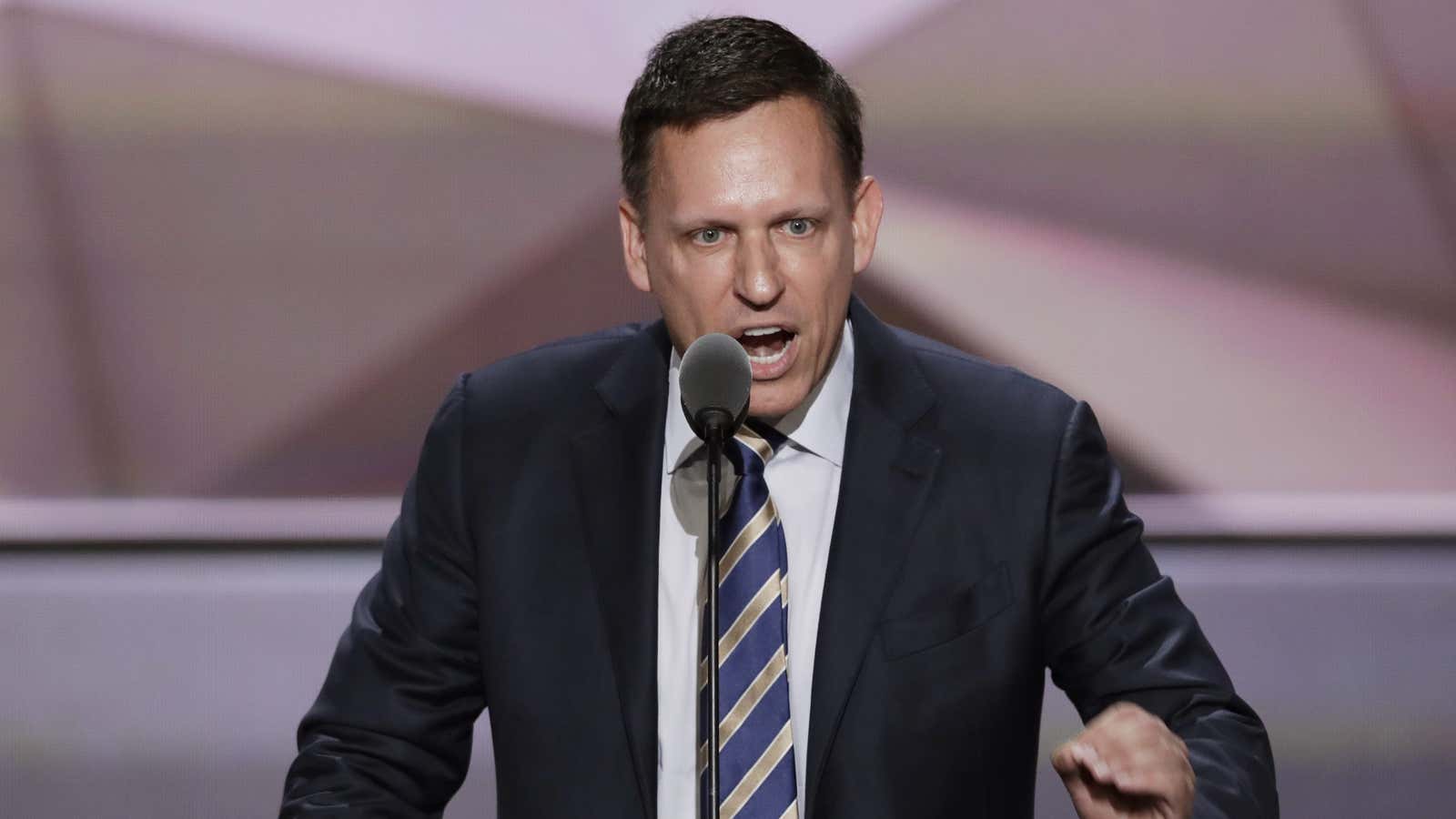It’s a bit of a mythical beast, like a unicorn: the Silicon Valley Libertarian. Sure, they exist. There is Peter Thiel, a dyed-in-the-wool believer. He holds that humanity’s hope lies in floating cities beyond the reach of needling bureaucrats and high marginal tax rates (see the Seasteading Institute). There are also groups such as the Bay Area-based Lincoln Network, a band of moderate libertarian techies that promotes market-driven solutions to issues from patents to job creation.
But gather all the hardcore Silicon Valley libertarians from their subreddits, and you’d struggle to fill a few Google buses. The reality is the technology community in bright-blue northern California is a reliable stalwart of Democratic politics.
A new Stanford University study puts a fine quantitative point on it. The research, presented at the American Political Science Association last week (and now under peer review), asked more than 600 “elite technology company leaders and founders” (a group of mostly millionaires who had raised a collective $20 billion in venture capital) about their political leanings. Their findings show in almost every regard, Silicon Valley is on board (or even to the left) of the Democratic party.
Most entrepreneurs, the survey found, favor high taxes on the rich, generous social services for the poor, and a global internationalist outlook behind free trade and immigration. Environmental protection and income inequality were ranked as ”extremely important” to them personally.
But there were two key areas where the entrepreneurs’ views diverged from Democrats, hewing much more closely to most Republican donors and voters: strong opposition to labor unions and government regulation. While that doesn’t make them Republican (tech employees sent 97 cents of every dollar in political donations to Democratic presidential nominee Hillary Clinton), it does make them outliers in the world of progressive politics.
“We show that technology entrepreneurs’ predispositions toward racial tolerance, non-authoritarianism, and cosmopolitanism align them with Democrats in supporting liberal redistributive, social, and globalistic policies,” the authors write (pdf).
This flies in the face of conventional wisdom that casts Thiel as the archetype of Silicon Valley politics. In fact, the investor and PayPal founder seems to be quite isolated in his politics after backing then-presidential candidate Donald Trump at the Republican National Convention last July.
How to make sense of this contradiction? The authors argue that technology entrepreneurs’ positions are not a byproduct of wealth or education but are rooted in positive regard for markets and entrepreneurship. Even so, their priorities appear to have overridden an alliance with the Republican Party. ”Theories based on self-interest would not likely predict the unique pattern of views and behavior of the ascendant economic elite we studied,” they wrote.
Now, get ready for the clash. As the wealthy, ascendent class of Silicon Valley entrepreneurs roars into Democratic politics, it will rewrite the party’s ideology and priorities, and diminish unions’ historical clout. The authors euphemistically predict rough waters ahead. “Going forward, these differences are likely to create significant conflicts within the Democratic Party coalition,” the authors write.
